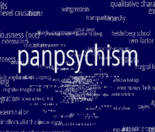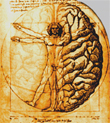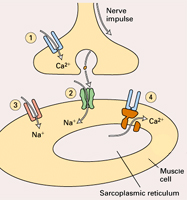Monday, 1 February 2016
Two Scientific Models Called into Question

Every scientific theory consists of models that can be used to generate hypotheses that can be tested by observation or experimentation. If the observations or experimental results are inconsistent with what the models predict, then the models themselves must be called into question. Recent developments in neuroscience provide two examples of models that are going to have to be adjusted to such “abnormal data”, as Thomas Kuhn has called them. (more…)
From Thought to Language, Mental Disorders | No comments
Tuesday, 19 January 2016
Device screens: tools of liberation, or enslavement?
 As a parent, I sometimes find my patience sorely tried when my teen is so busy playing with his iPod that I have to call him 50 times for dinner. He’s not impressed when I tell him that what he’s doing with his gadget (usually, pressing some kind of button to score some kind of points) is no different from the laboratory rats who keep frantically pressing a lever because they have learned that that will get them a pellet of food. Such operant conditioning is a powerful mechanism, very well preserved in humans because of its obvious adaptive value, but it can easily hypnotize us if we do not realize its power.
As a parent, I sometimes find my patience sorely tried when my teen is so busy playing with his iPod that I have to call him 50 times for dinner. He’s not impressed when I tell him that what he’s doing with his gadget (usually, pressing some kind of button to score some kind of points) is no different from the laboratory rats who keep frantically pressing a lever because they have learned that that will get them a pellet of food. Such operant conditioning is a powerful mechanism, very well preserved in humans because of its obvious adaptive value, but it can easily hypnotize us if we do not realize its power.
The potential dangers of screen devices were the topic of a symposium held at the University of Quebec at Trois-Rivières in March 2015 (for the agenda, see the first link below). (more…)
Pleasure and Pain | No comments
Tuesday, 5 January 2016
Is Consciousness Ubiquitous?

When scientists are trying to explain some of the strangest, most complex phenomena, such as the origins of the universe or human consciousness, it’s not so surprising that some of the hypotheses they come up with are pretty surprising themselves!
For example, in recent years, some of the most important researchers in the field of human consciousness have begun to embrace panpsychism, the view that consciousness is an attribute present throughout the physical world, and not only in human beings and a few other other large primates. This belief has traditionally been regarded skeptically by Western science and associated chiefly with Eastern spirituality or various New Age doctrines. (more…)
The Emergence of Consciousness | No comments
Tuesday, 22 December 2015
Some Interesting Links
 This week, I’m offering you my own little holiday present: links on two subjects that we’ve already explored in this blog several times before, simply because they’re so fascinating.
This week, I’m offering you my own little holiday present: links on two subjects that we’ve already explored in this blog several times before, simply because they’re so fascinating.
The first link takes you to an annual episode of the Brain Science Podcast in which the episodes posted during the year are reviewed. For example, that year the podcast’s host, Ginger Campbell, discussed brain plasticity with Michael Merzenich, the links between cognition and emotion with Luis Pessoa, sleep with Penny Lewis, consciousness with Michael Graziano, the benefits that physical exercise has for the brain with John Ratey, and mirror neurons with Greg Hickok. (more…)
From the Simple to the Complex | No comments
Thursday, 12 November 2015
From membrane excitability to subjective consciousness

When people tell me that they’d like to understand more about how their brain works, I often respond teasingly that first they should probably ask what they use it for. Because you don’t use your brain only for its obvious, “proximal” functions, such as thinking, talking, understanding, laughing, crying, riding a bicycle, philosophizing, and simultaneously being aware of doing all those things. In that sense, unhelpful as this answer may seem, you actually use your brain for everything: everything you do, including sleeping or daydreaming, involves co-ordinated activity on the part of your brain.
No, what I’m talking about is the brain’s ”distal” (ultimate) function. In other words, how and for what reason did the first nervous systems evolve? (more…)
From the Simple to the Complex | No comments







